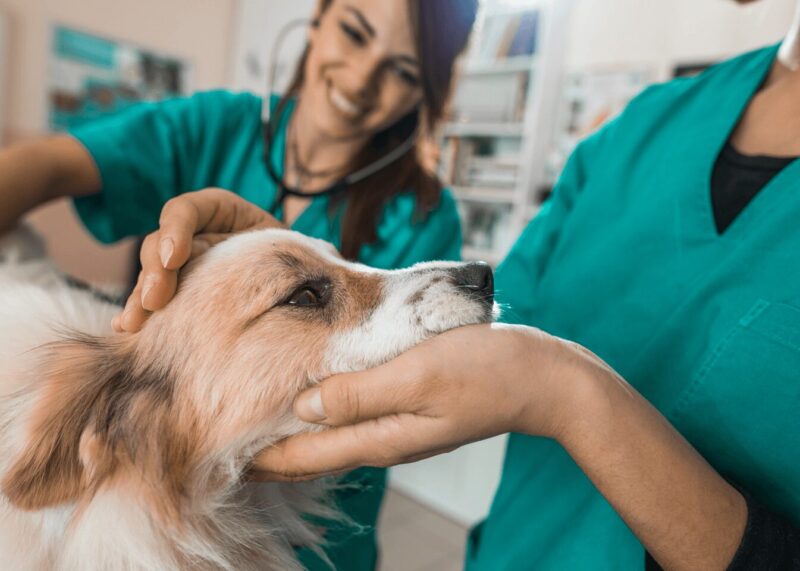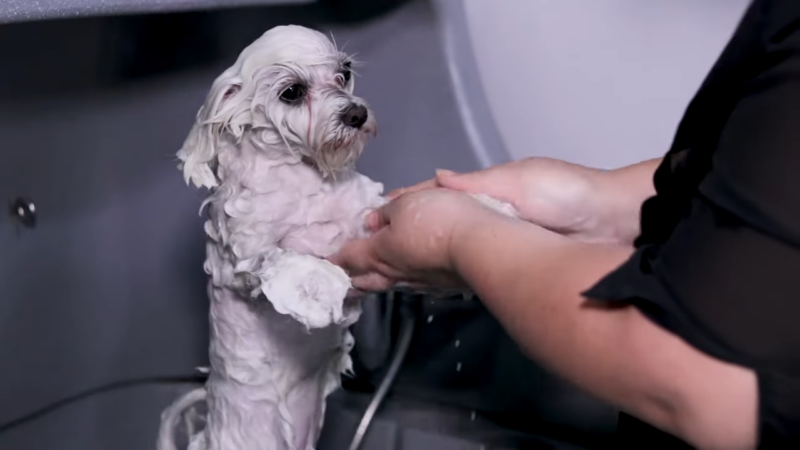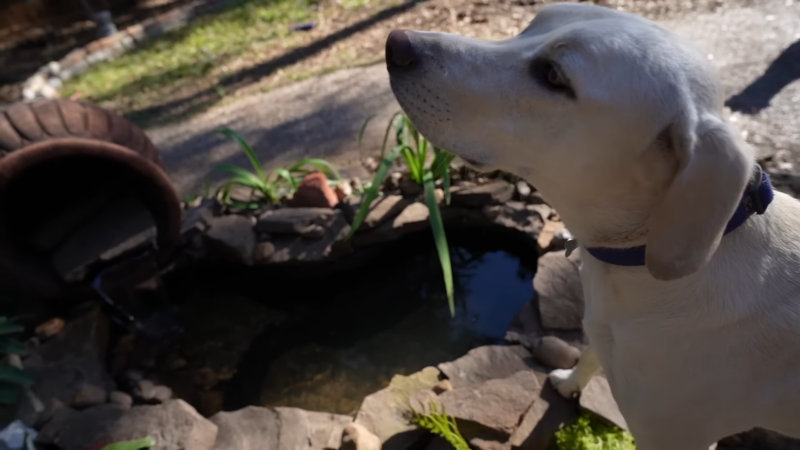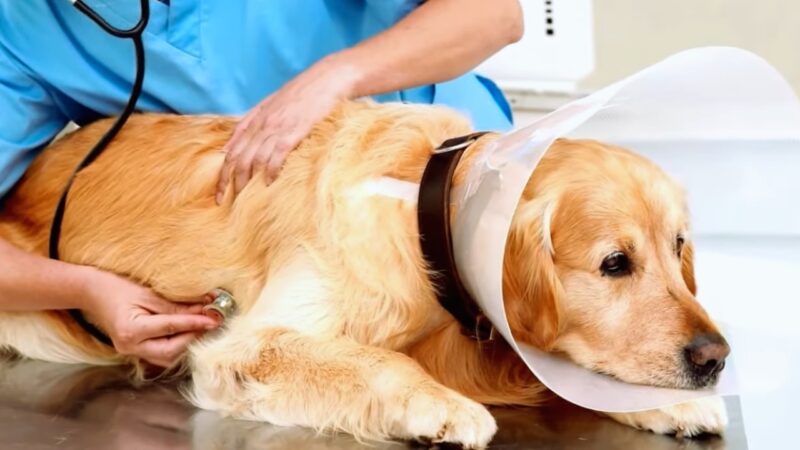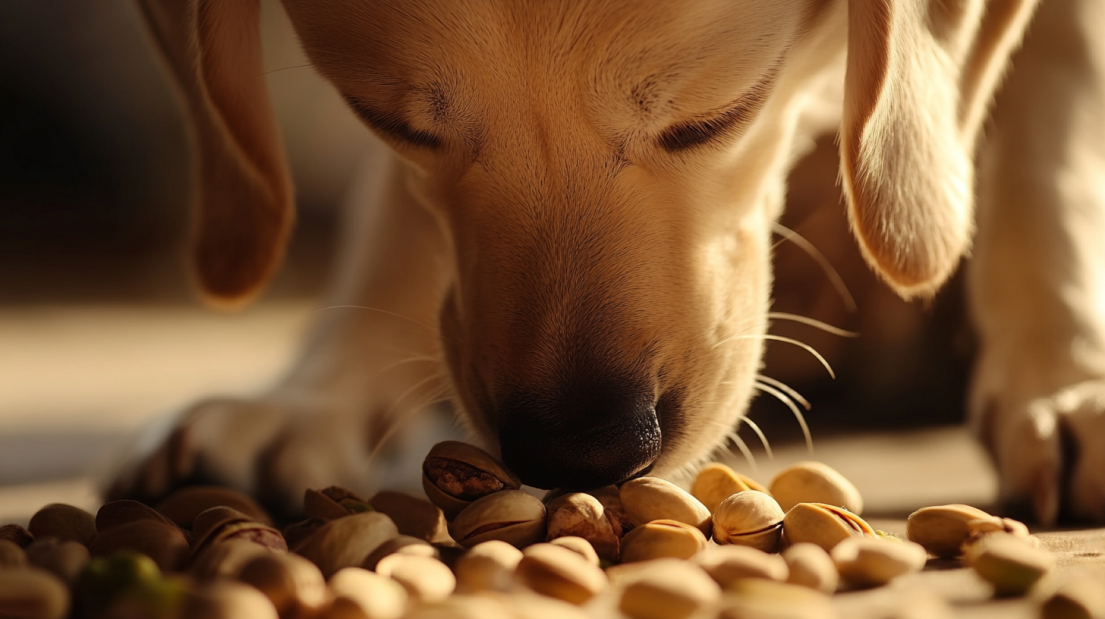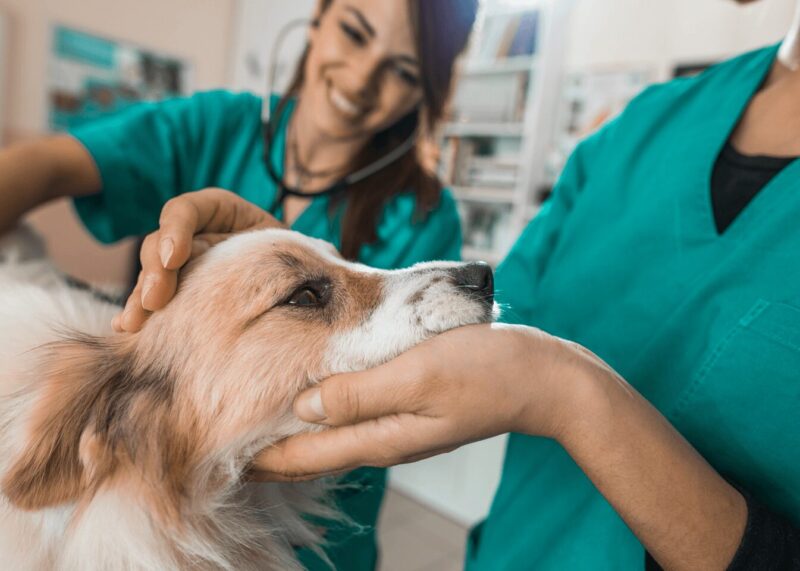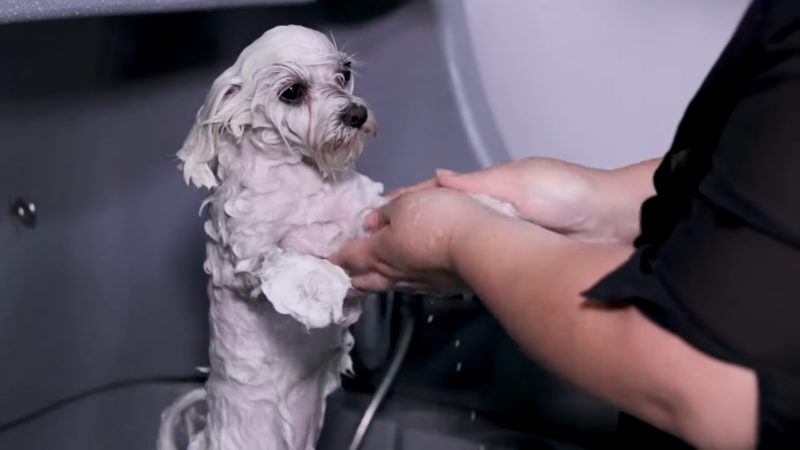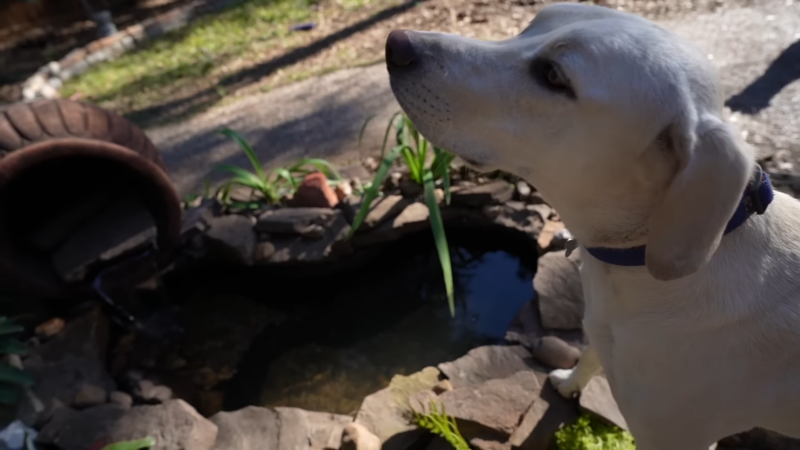
-
 Stefan Mihajlovic
Stefan Mihajlovic
- Published:
- Updated: March 12, 2024
- Category: Dog Specific Care, Medication and Treatments, Pet Health and Care
Share Post:
Dogs are man’s best friend. They bring joy, companionship, and unwavering love into our lives. So, it can be a real worry when our canine companions are unwell. You’ve noticed your dog panting excessively and having diarrhea? Let’s dive into some reasons why this could be happening and explore ways to help.
The Symptoms

To begin, we should establish what these symptoms look like in our dogs.
Panting
Panting is a normal behavior for dogs as it’s their primary way of cooling down and getting oxygen into their bodies. However, excessive or unusual panting can sometimes be a signal that something is amiss.
Diarrhea
Diarrhea, on the other hand, is often a sign that something is wrong within the digestive system. Occasional diarrhea can be a natural way for a dog’s body to expel something harmful, but persistent diarrhea can signal serious health issues.
Now that we’ve established the symptoms let’s delve into possible causes of excessive panting and diarrhea in dogs.
Causes of Excessive Panting and Diarrhea
Excessive panting and diarrhea can arise from a wide range of causes. Here are some of the most common ones:
1. Stress or Anxiety
Yes, dogs can feel stress and anxiety too! Changes in environment, loud noises, or separation from their favorite humans can lead to stress-induced diarrhea and excessive panting.
2. Heat Stroke
Heatstroke is a serious, life-threatening condition that occurs when dogs overheat. It can lead to symptoms like excessive panting and diarrhea.
3. Ingesting Harmful Substances
If your dog has ingested something harmful (like certain human foods, plants, or chemicals), it could lead to gastrointestinal upset, causing symptoms like panting and diarrhea.
4. Diseases
Several diseases can cause both excessive panting and diarrhea. These can include diseases affecting the digestive system (like pancreatitis), the endocrine system (such as hyperthyroidism or Cushing’s disease), or other systemic illnesses like infections or cancer.
Addressing the Issue: What Can You Do?

If your dog is showing these symptoms, it’s crucial to take action promptly. Here are some steps to take:
1. Seek Professional Help
The first step is to consult a veterinarian immediately. As a vet, I can’t stress enough how important it is to have your dog examined by a professional who can provide an accurate diagnosis and treatment plan.
2. Keep Them Cool and Hydrated
Ensure your dog has access to plenty of fresh water, and keep them in a cool, shaded area. If you suspect heat stroke, this is especially important. However, if your dog is very weak or unresponsive, it is a medical emergency, and you should get to a vet right away.
3. Monitor Their Diet
Pay close attention to what your dog is eating. If there are sudden changes in their diet or if they’ve ingested something they shouldn’t have, it could be the root cause of their symptoms. In some cases, a bland diet may be recommended by your vet.
4. Reduce Stress Factors
Try to reduce any potential stressors in your dog’s environment. This might involve creating a calm, quiet space for them, providing comfort items, or using dog-friendly calming products.
Preventive Measures

Prevention is always better than cure. Here are some preventive measures you can consider:
- Regular Vet Check-ups: Routine vet visits can help identify health issues before they become serious.
- Heat Stroke Prevention: Avoid strenuous exercise during the hottest parts of the day, and never leave your dog in a hot car.
- Stress Reduction: Provide a stable, calm environment for your dog and address any potential stressors promptly.
- Proper Diet and Exercise: A well-balanced diet and regular exercise can keep your dog healthy and help ward off many health issues.
A Deeper Look Into Diseases
As previously mentioned, a number of diseases can cause symptoms like excessive panting and diarrhea. Let’s take a more in-depth look at a few of these.
Pancreatitis
The pancreas is a small but essential organ that aids in digestion. Inflammation of the pancreas, or pancreatitis, can lead to symptoms such as diarrhea, vomiting, and in severe cases, panting due to pain or fever.
Hyperthyroidism
While rare in dogs, hyperthyroidism is a condition where the thyroid gland produces excessive amounts of thyroid hormone, leading to a sped-up metabolism. This can cause various symptoms, including increased appetite, weight loss, diarrhea, and panting.
Cushing’s Disease
Also known as hyperadrenocorticism, Cushing’s disease is a condition where the body produces too much of the hormone cortisol. This can lead to symptoms such as increased thirst, urination, appetite, panting, and digestive issues like diarrhea.
These conditions require specific treatments, which your veterinarian can provide following a proper diagnosis.
Your Dog’s Body Language

To better identify when your four-legged friends may be in distress, it’s important to understand their body language. Each dog has its unique way of expressing discomfort, and recognizing these signs can lead to earlier intervention.
Behavioral Changes
Look for changes in your dog’s usual behavior. They might become less active, seem uninterested in activities they usually enjoy, or even become more clingy.
Changes in Eating and Drinking Habits
Monitor your dog’s eating and drinking habits. Increased water intake can be a sign of various health issues. Loss of appetite can also be an indication of discomfort.
Posture Changes
Your dog’s posture can tell you a lot about how they’re feeling. Hunched posture or excessive lying down could indicate that they’re not feeling well.
Understanding these signs can help you identify when your dog might need medical attention.
A Healthy Environment for a Healthy Dog

A dog’s environment plays a significant role in its physical and mental well-being. Here are a few tips to ensure your dog is living in a healthy environment:
Regular Exercise
Regular exercise is vital for your dog’s health. It helps maintain their weight, improve their mood, and keep their digestive system functioning optimally.
Proper Nutrition
A balanced diet is crucial for your dog’s overall health. It can improve their immune system, maintain a healthy weight, and help prevent digestive issues.
Mental Stimulation
Mental stimulation is just as important as physical exercise. Regular playtime, puzzle toys, and training can help reduce stress and prevent behavioral problems.
Final Words
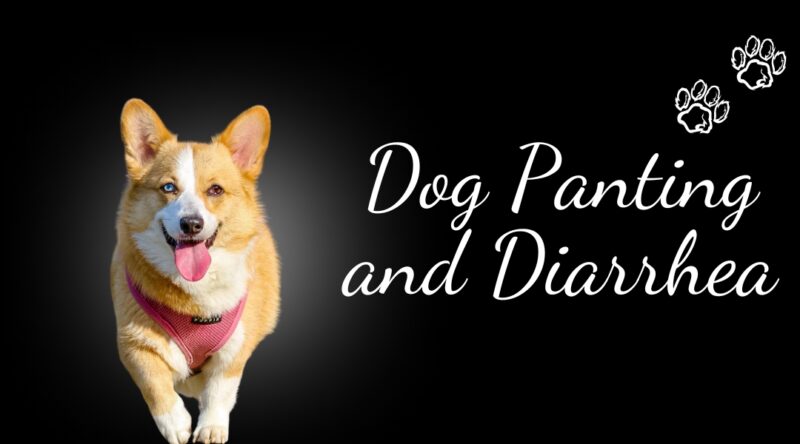
If your dog is panting excessively and has diarrhea, there’s no need to panic. These symptoms, while worrisome, often have treatable causes. It’s essential to contact your vet immediately and follow their advice. With the right care, your canine companion will hopefully be back to their normal, playful self in no time!
If you notice your furry companion experiencing symptoms such as panting and diarrhea, it’s crucial to understand the underlying causes and appropriate steps to address the issue, which may include investigating why your dog is pooping clear liquid.
Related Posts:
- How Can You Tell If Your Dog Has Heart Problems?
- Busting Common Myths About Pet Behavior - Everything…
- Do Hamsters Hibernate - Everything You Need to Know About
- Teddy Bear Hamsters - Everything You Need to Know…
- Panda Bear Hamsters - Everything You Need to Know…
- The Impact of Pets on Children's Development -…


